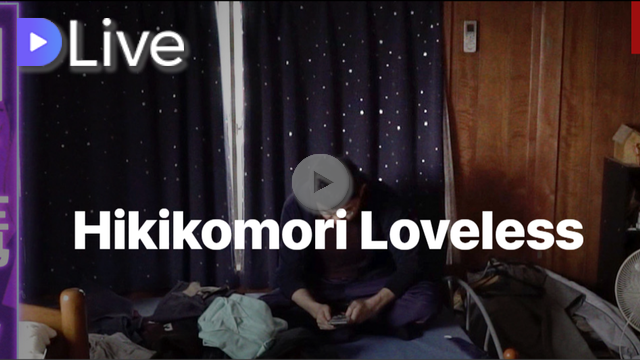Hikikomori Loveless
What causes young Japanese hermits to give up on real life
Known as hikikomori, the phenomenon of social withdrawal has become increasingly commonplace in Japan. Hundreds of thousands of Japanese shut themselves away, spending months and sometimes years in isolation.
The social recluses don’t study or go to work. They retreat into their rooms, rarely venturing out to get food in a convenience store and to communicate with immediate family.
One of them is Ito. He spends time listening to music, playing video games and surfing the internet. But he has neither the power nor desire to leave his bedroom, where he has voluntarily locked himself.
Unlike his younger brother, Ito was regularly yelled at and hit as a child. His parents, he says, only wanted him to be successful in life.
Hikikomori often strikes families, where the fathers spend day and night at work, while the mothers focus entirely on their offspring, particularly the eldest sons.
Smothering mothers, bullying at school, social pressure and expectations are among the reasons that push some Japanese into self-imposed confinement.
RTD travels to Japan to hear the stories of Ito and others, who ended up trapped inside their bedrooms. We question why the epidemic of hikikomori has gripped modern Japan, and what drives the people into seclusion and how some of them eventually decide to get out.
From personal stories of hikikomoris and their relatives, and from those who reach out to them, RTD offers an intimate portrait of Japan’s modern hermits
My video is at DLive
